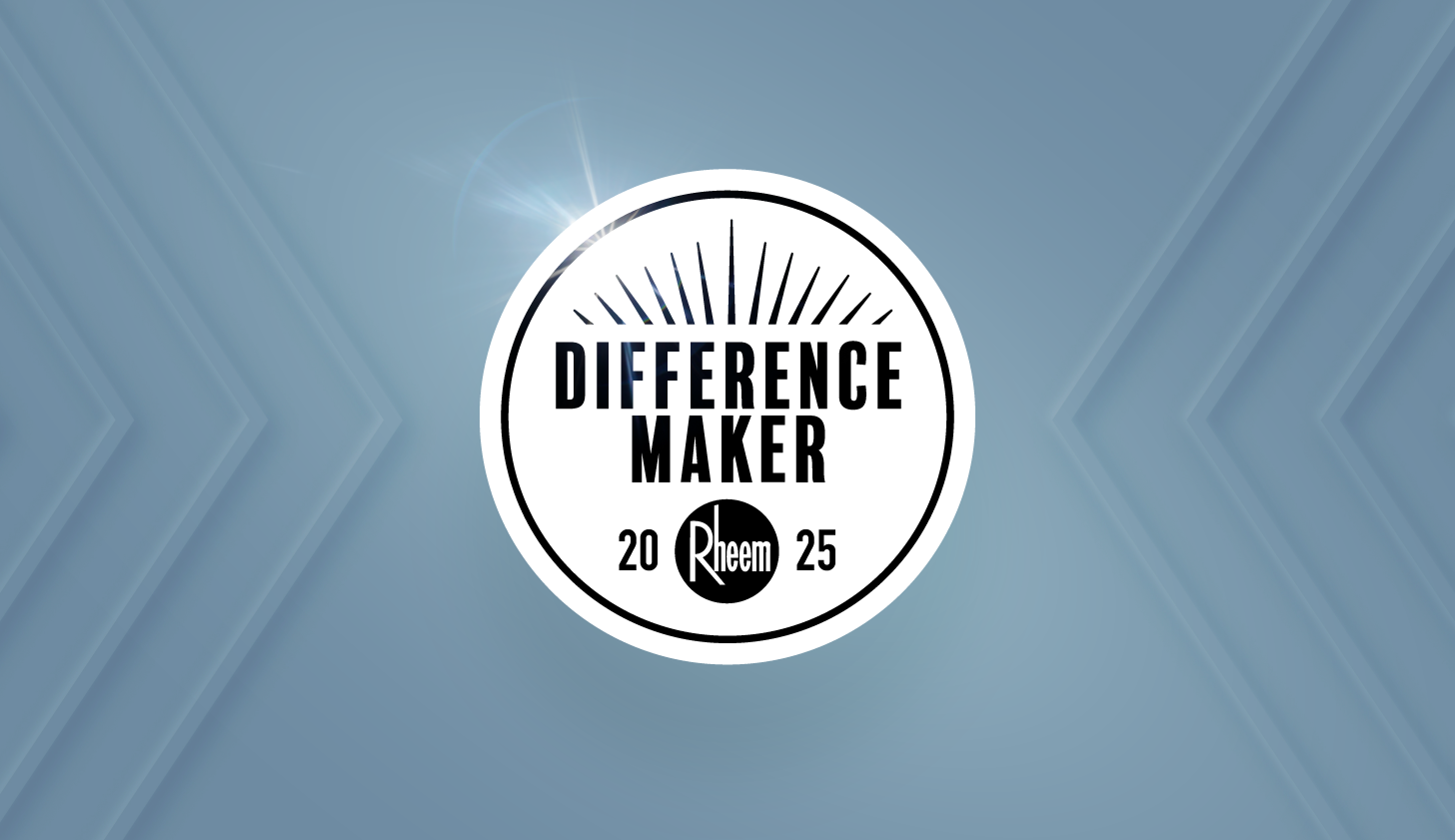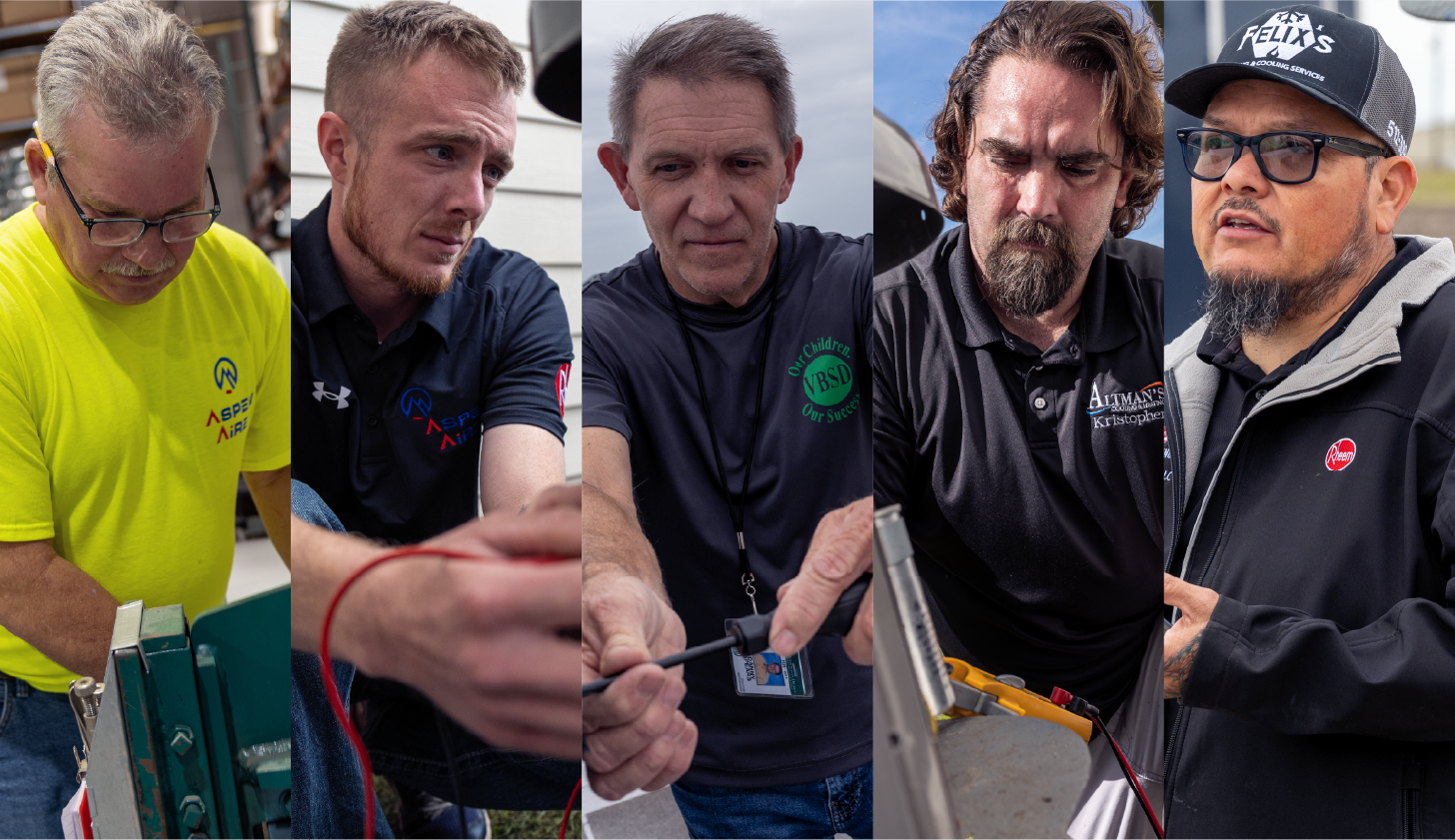Heat Pump vs. Electric Tankless Water Heaters: Which Offers Better Long-Term Efficiency?
October 2, 2025
There’s a lot to consider when deciding between a heat pump water heater and a tankless model that produces heat through electricity. There are pros and cons for each, all of which depend on your household size, space for the appliance and tolerance for upfront costs as opposed to ongoing energy expenses. We’re going to tell you what every homeowner should know to make the comparison between the two types of water heaters.
How Do Heat Pump Water Heaters and Electric Tankless Water Heaters Work?
The first thing you should know is that an heat pump water heater delivers high energy efficiency. It pulls warmth from the surrounding air and transfers heat to your water. Because of this, it has a lower carbon footprint, and the operating costs are lower.
An electric tankless water heater delivers continuous, on-demand hot water by heating it as it passes through the unit. There’s no standby heat loss by going to a tank for storage. It only operates when you need it, which saves on the monthly energy bill.
What Are the Long-Term Efficiency Differences Between the Two?
First, we’re going to tell you about the Uniform Energy Factor (UEF), the metric that best demonstrates efficiency. It’s a measurement that tells us how many units of heat are used for every unit of electricity. The UEF for the heat pump water heater is 3.5-4.0. Certain models do even better when in warm climates, because the air that is pulled in to transfer heat to water is warmer.
The UEF for electric tankless water heaters is in the 0.91-0.99 range. This makes them more efficient than old-style electric tanks, but since they still use electricity to create heat, the heat pump water heater wins on pure efficiency metrics.
What Are the Upfront Costs and Installation Requirements?
Along with energy efficiency, there are other costs connected to this decision. Let’s talk about those:
- Heat pump water heater appliances are generally more expensive to purchase, as well as install. Because they have a tank, they need more space and require good ventilation to circulate the air. The good news is there are rebates and incentives in place to encourage households to make the switch to the efficiency of heat pump water heaters.
- Electric Tankless Units are less expensive to buy, and, because they’re compact, they make a smaller footprint on the space in your home. However, the electricity in some homes requires electrical upgrades that can be costly to handle the needed requirements.
How Do Each Water Heater’s Maintenance and Lifespan Compare?
Any apples-to-apples comparisons about a big purchase need to take these things into consideration. We’ve discussed costs, now let’s talk about long-term value:
- Heat pump water heaters usually last 10-15 years. They don’t require a lot of maintenance, but cleaning the air filter and flushing the tank on a regular basis will help support energy efficiency.
- The electric tankless water heater lifespan can be up to 20 years. Since they don’t have a tank, mineral deposits could build up on the heating components, and they need regular descaling for households located in hard water areas.
FAQ: Heat Pump vs. Electric Tankless Water Heaters
Which costs less to operate year after year?
The heat pump water heater takes the prize on this one. Not only does it use significantly less energy, but it also costs less to run than electric tankless units. In fact, Rheem heat pump water heaters save 60% on energy bills vs. tankless.
Does ambient temperature impact efficiency?
Yes, for heat pump water heaters it does, especially in warmer climates. If the air temperature around the tank is lower than 45°, the water output can be reduced. Tankless units are not impacted by ambient temperatures.
What about large families?
While tankless units can work for large families, they need to be sized for maximum use on a simultaneous basis. Heat pump water heaters serve big households best.
How does a tankless model avoid energy waste?
By heating water only when it’s in demand, tankless units eliminate standby heat loss. It only activates when someone turns on the hot water.
How can I get a basic understanding of energy efficiency?
Glad you asked. There’s even a holiday in which governments, utility providers and manufacturers work together to demystify the water efficiency ratings as the industry standard.
What Do You Need to Know Before Making a Choice?
Let’s summarize the factors that help make the decision clear for your hot water needs. Consider the following:
- The size of your household
- The installation space you have to work with
- Your local average year-round air temperature
- The capacity of your electrical panel
From there, remember to check for current utility rebates and tax incentives to help offset your upfront costs. You’ll be comfortable with your choice — and your water —for your efforts.







